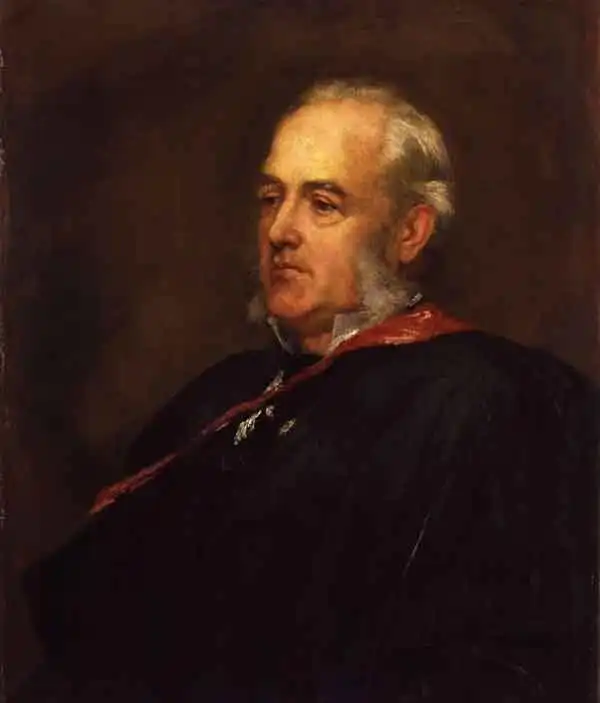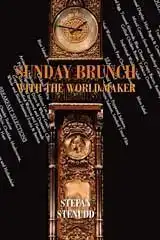Max Müller:
|
by Stefan Stenudd |
Max Müller (1823-1900) was a prominent Indologist in Britain, editor of the 50 volumes work Sacred Books of the East, where he translated many of the Sanskrit texts. This is what he stated about the disease of language:
Mythology, which was the bane of the ancient world, is in truth a disease of language. A mythe means a word, but a word which, from being a name or an attribute, has been allowed to assume a more substantial existence. [Max Müller, Lectures on the Science of Language, vol. 1, London 1885 (first published in 1861), 12.]
He states that most "heathen gods are nothing but poetical names, which were gradually allowed to assume a divine personality never contemplated by their original inventors."
He continues with a list of examples. Eos was a name for the dawn, and her husband Tithonos the dying day. Zeus originally meant the bright heaven, in Sanskrit Dyaus, Luna was of course the name of the moon, and so on. This happened not only to celestial bodies and events:
Fatum, or fate, meant originally what had been spoken; and before Fate became a power, even greater than Jupiter, it meant that which had once been spoken by Jupiter, and could never be changed — not even by Jupiter himself. [Müller 1885, 12.]
Müller further claims that this "mythological disease" is not extinct. He mentions the controversy in the Middle Ages between Nominalism and Realism: "Men were called heretics for believing that words such as justice or truth expressed only conceptions of our mind, not real things walking about in broad daylight." [Müller 1885, 13.]
Although Müller's etymology has been frequently questioned or refuted, there is much evidence of the links between mythological deities and natural phenomena.
In particular, the celestial bodies appear in numerous myths and often do so as beings with their own will and mind. In other cases they are controlled by deities, like Helios transporting the sun through they sky. In such cases, it is easy to suspect a process where the natural phenomenon by time was made into a story, which could grow into all kinds of events and adventures.
The question is if this "disease" is really one of language.
The sun appearing in the east with dawn and crossing the sky to set in the west at dusk describes a series of events with a beginning and an end — albeit repeated every day. That is pretty much a story all in itself. The same goes for the phases of the moon, the change from ebb to tide, the shifting of the seasons, and so on.
Nature is full of stories, as are the creatures on it, including humankind. Turning natural events into stories would come naturally to us, maybe even before we had languages by which to tell them.
NEXT
Edward B. Tylor: Animism Turned Personification.
Mythology Meanings Menu
- Introduction
- Mythology and Fable in the First Encyclopedia: Louis de Jaucourt
- Thomas Blackwell: Instruction by Fable
- Antoine Banier: Mythology as Idolatry
- Eusebius: Myths as Heathen Remnants
- Plutarch: Battle of Daemons
- Euhemerus: Myth as Actual History
- A Scientific Revolution of Mythology
- Andrew Lang: Rational versus Irrational
- Max Müller: Disease of Language
- Edward B. Tylor: Animism Turned Personification
- James G. Frazer: Myth as Ritual
Some of My Books:Click the image to see the book at Amazon (paid link).
The Greek philosophers and what they thought about cosmology, myth, and the gods. |
MENU
Creation Myths Around the World
How stories of the beginning began.
The Meanings of Mythology
Theories through history about myth and fable.
Archetypes in Myths
The mythological symbols and what they stand for.
The Logics of Myth
Patterns of creation.
CREATION MYTHS IN DEPTH
Creation in Rig Veda 10:129
The paradox of origin, according to an Indian myth.
Genesis 1
The first creation story of the bible scrutinized.
Enuma Elish
The ancient Babylonian creation myth.
Xingu Creation of Man
The insoluble solitude of gods and humans.
Contact
About Cookies
ON MY OTHER WEBSITES
Psychoanalysis of Myth
What Sigmund Freud and C. G. Jung thought about myths, their origins and meanings.
Myth of Creation
An introduction to the subject of creation myths and the patterns of thought they reveal.
Cosmos of the Ancients
What the Greek philosophers believed about the cosmos, their religion and their gods.
Life Energy
The many ancient and modern life force beliefs all over the world explained and compared.
Taoistic
Taoism, the ancient Chinese philosophy of life explained. Also, the complete classic text Tao Te Ching online.
 Stefan Stenudd
Stefan Stenudd
About me
I'm a Swedish author and historian of ideas, researching the thought patterns in creation myths. I've also written books about Taoism, the Tarot, and life force concepts around the world. Click the image to get to my personal website.

 Archetypes of Mythology
Archetypes of Mythology Psychoanalysis of Mythology
Psychoanalysis of Mythology Cosmos of the Ancients
Cosmos of the Ancients Life Energy Encyclopedia
Life Energy Encyclopedia Sunday Brunch with the World Maker
Sunday Brunch with the World Maker Fake Lao Tzu Quotes
Fake Lao Tzu Quotes